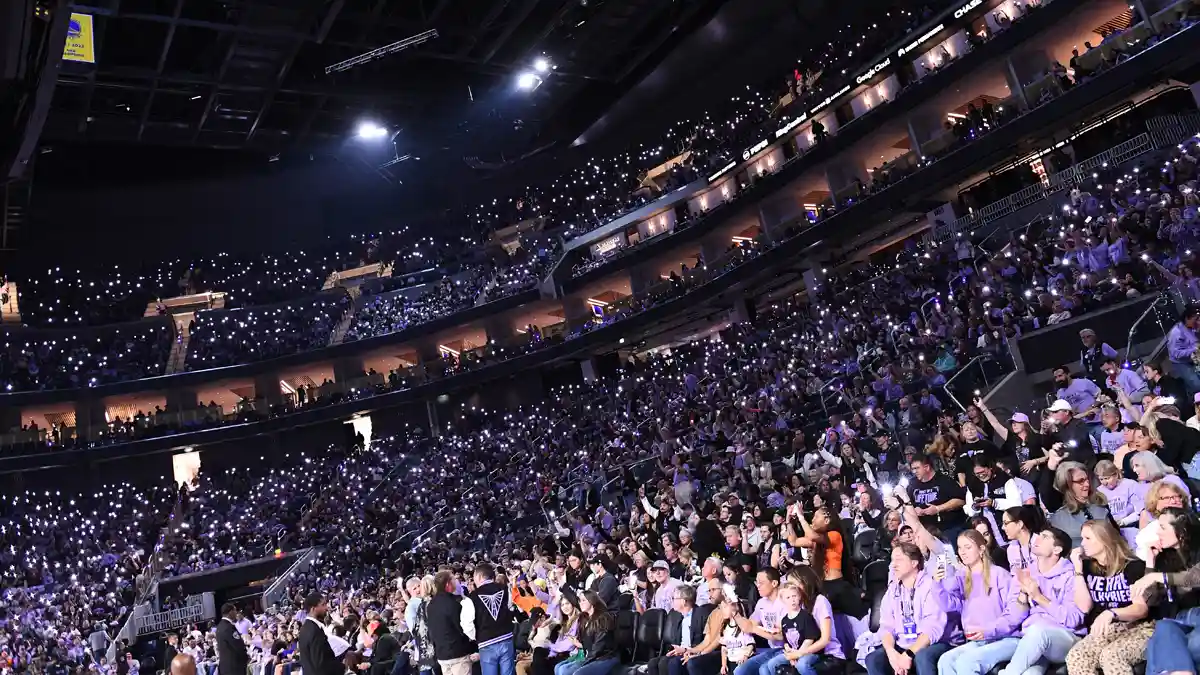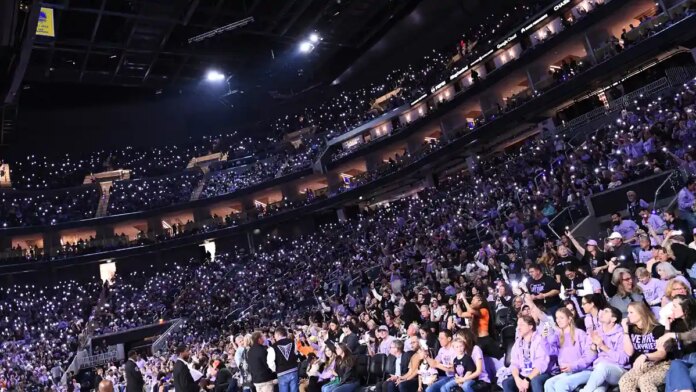PHOENIX – According to Colin Salao of Front Office Sports, WNBA players rejected the league’s first proposal to the union.

The WNBA and its union does not appear to be close to an agreement on the terms of a new collective bargaining agreement. The current one expires on October 31 and the main crux of the issue is a financial one.
The WNBA inked a 11-year, 2.2 billion dollar broadcast and media rights deal with the same broadcast partners of the NBA. The league is also expanding to 18 teams by 2030 and according to Front Office Sports, received $250 million in expansion feee from three new franchises.
The players want what they feel is an equitable portion of the increased revenue the league is generating.
Players of the WNBPA Demand for Higher, Fair Pay
During the pregame availabilities in Las Vegas on June 22, Sophie Cunningham and Sydney Colson of the Indiana Fever read prepared statements before the team faced the Aces on June 22.
Indiana’s Sophie Cunningham (@sophaller) with a prepared statement in regards to upcoming CBA negotiations with the #WNBA pic.twitter.com/ypwT1HsIIf
— WillieGRamireZ (@WillieGRamirez) June 22, 2025
Their statements demand a ‘fair share’ in wages, and they stated that the upcoming CBA will be a defining moment for the league. Throughout the years, many WNBA players have traveled overseas to earn more money during the offseason playing professional basketball.
Dallas Wings guard Paige Bueckers signed a three-year deal with Unrivaled, founded by Napheesa Collier and Breanna Stewart, back in April. What she’ll make throughout the Unrivaled season will exceed the total salary she would make through four years of her WNBA contract.
“We want to work with the league,” Sabally said. “It’s time for labor to be paid, and for us, like every other revenue stream, has basically been increased. Ticket sales are up through the roof, like we have higher numbers watching on television, so it’s time to pay the labor that is here every single day that is contributing to the work.
“But then again, the next CBA will be very transformative, but we cannot settle on a first offer that might look good at first but doesn’t guarantee us growth within the league as people that really stand here every single day. And in our modern time nowadays, it is time, definitely, all around America to pay the labor.”
“Slap in the face” Sabally said Tuesday
The clock is ticking on the league to complete a new agreement for the upcoming CBA before its current one, that the players opted out of, expires on October 31.
#Mercury union rep Satou Sabally calls #wnba CBA offer to players a “slap in the face” pic.twitter.com/x6rc00ZeEO
— jeffmetcalfe (@jeffmetcalfe) July 1, 2025
Phoenix Mercury forward Satou Sabally, a WNBPA team representative, has been pretty vocal about league scheduling earlier this season. After the team lost to the Seattle Storm at home on June 7, she criticized WNBA Commissioner Cathy Engelbert for scheduling them to play five games in eight days, in which they went 2-3 in that stretch.
On Monday, the league announced that it would expand to 18 teams, with Cleveland (2028), Detroit (2029), and Philadelphia (2030) rewarded with expansion teams. This season, the WNBA has expanded to 13 teams with the Golden State Valkyries playing its inaugural season, and will increase to 15 teams the following season with the additions of Portland and Toronto.
“We can focus on our players in the union,” Sabally said on Tuesday. “We got a proposal from the league which was honestly a slap in the face. And we really have to put an emphasis on the players that are in our league right now.
“But, I love to see the league growing, adding these teams in Philly and Detroit that’s amazing is that the league can grow. But how cool would it also be to have a little bit expansion on the rosters. Let’s focus on the teams that have everything set up right now and maybe focus on the teams also that find excuses continuously to lack investment into their players before we focus on adding more to the grain of people that can’t really be sustained.”
Teams Investing in Practice Facilities
In 2023, the Las Vegas Aces became the first WNBA team to have a standalone, purpose-built practice facility.
Nearly a year ago, the Phoenix Mercury unveiled its $100 million state-of-the-art practice facility and courts named after legend Diana Taurasi. The team has access to rest and recovery rooms and a kitchen with private chef.
The Phoenix Mercury, Golden State Valkyries, Las Vegas Aces, and Seattle Storm are the only teams in the league that have their own practice facilities. Since then, current and expansion teams across the WNBA announced plans to build and invest in their practice facilities.
“I used to order my own pre game meals,” Sabally said. “It starts with that, just being able to have a standard of excellence with an organization, but also standard of investment into taking care of your players so you only have to play. It goes from medical, it goes to travel. We just got charter flights last year, and that’s the minimum standard that we’ve been asking for.
“And then when the league says, ‘hey, now you guys have the charter now you can play three and four games.’ Now I’m talking about recovery and sports science. We’re not allowed to even track our workouts or our games on the court. And I’m like, ‘why wouldn’t you want to invest into Player Health,’ because it’s expensive. These are things that we need to pay attention to and that we will really push forward to have increased. But generally we’re on the right path, but there needs to be a discourse and also sense of urgency.”
This indeed could be a pivotal moment in WNBA history, because of the positive momentum the league has gained in recent years, the last thing both sides should want is a lock out or player stoppage.















